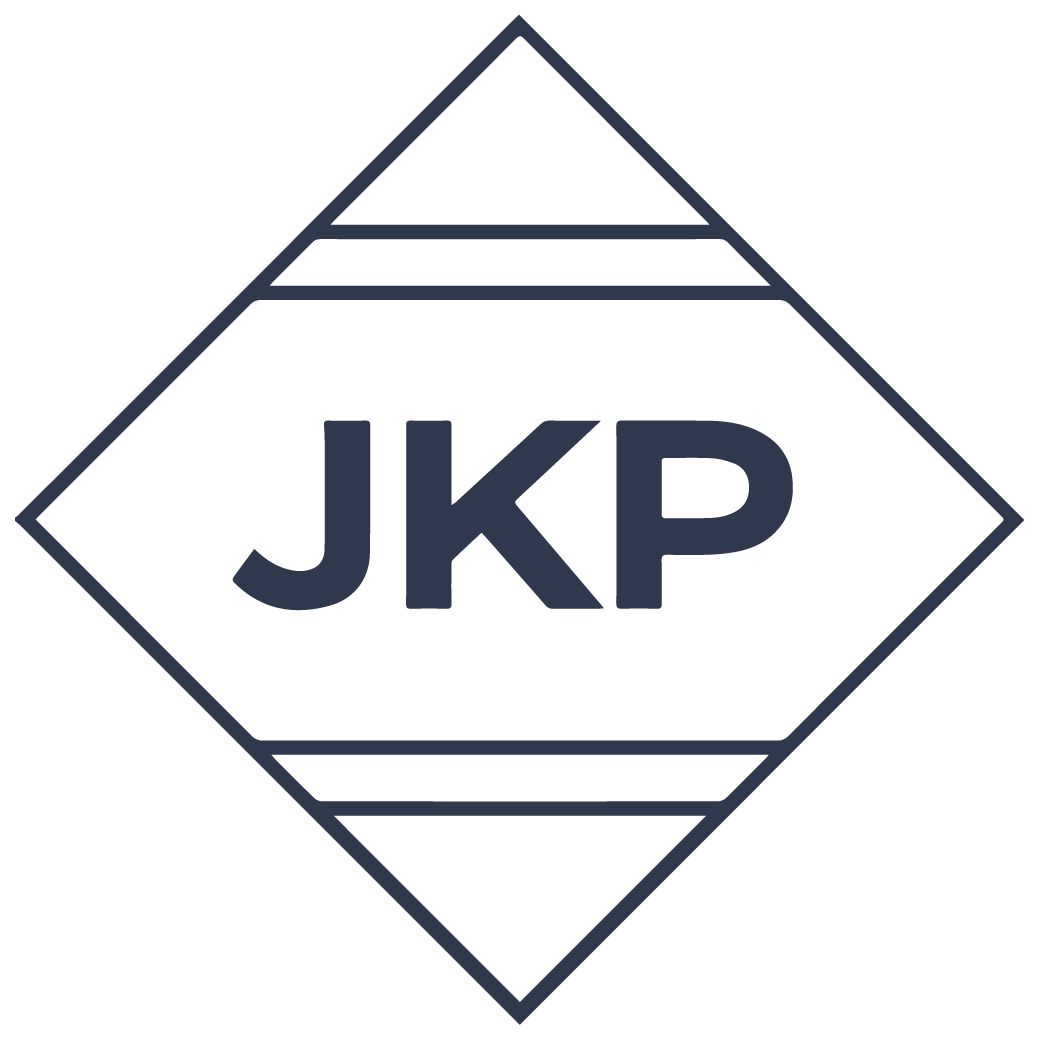Importing and exporting goods can be a costly part of doing business; any international buyer or seller will be aware of the complexities of customs declarations and duties. Taxes are typically due on most goods entering the UK from other countries.
One way for businesses to save money is to store imported goods in a bonded warehouse when they arrive in the UK. This is effectively a duty suspension zone authorised by HMRC, allowing depositors to avoid duties on goods that will be exported again and to defer duties on goods that aren’t ready to circulate in the UK market yet.
These storage facilities can either be private warehouses, where the operator and warehousekeeper is also the depositor storing their own goods only, or public warehouses, where the operator and warehousekeeper manages imported goods on behalf of third party depositors. Here at John K. Philips, we run a public bonded warehouse.
Bonded warehouses provide a secure location for otherwise dutiable imported goods to be kept safe and for importers to manage their inventories while postponing import taxes. If you’re curious about these facilities and their legal procedures, here’s what you need to know about how they work.
Entering goods into a bonded warehouse
Any business that wants to hold their imports in bonded storage instead of declaring and paying duties right away can register with a HMRC-approved bonded warehouse and enter their goods into storage there. You may want to do this if your imported goods:
- ● Don’t have a final destination yet after arriving in the UK
- ● Are still waiting on legal documents or licences to process
- ● Will be combined with other products that are arriving in separate shipments
- ● Are going to be re-exported without entering circulation in the UK market
- ● Need to be prepared for sale before entering the UK market (e.g. repackaging)
Any products coming into the UK that are liable for customs charges can be stored in a bonded warehouse to defer these duty payments until you’re ready to move them out of the facility.
Typically, these imports must come from countries outside of the EU, as any items moving from inside the EU to the UK are only eligible for bonded storage if they are covered by particular export refund, duty suspension, common storage, or community transit laws.
Not only should you ensure that you declare your imported goods correctly and send them directly to your nominated bonded warehouse within 5 days of customs clearance, you must also ensure your chosen warehouse has the appropriate facilities and licences to store your goods.
For example, you can only store goods eligible for excise duty in a specific type of bonded warehouse. These are known as wet bonded warehouses, where you can store alcohol, tobacco, and fuels – whereas dry bonded warehouses can store most other goods. The John K. Philips warehouse provides dry bonded storage.
Storing goods in a bonded warehouse
Once your goods have entered the bonded warehouse, you can keep them there for as long as you continue to pay the storage and administration fees. This could be for up to 5 years or more, during which the warehouse team ensures your goods are preserved in a secure location.
Of course, long-term duty-free storage is only possible for non-perishable merchandise that doesn’t fall under stricter Common Agricultural Policy regulations. Consumable products with limited storage terms include meat, poultry, fruit, veg, fats, oils, and sugars.
Additionally, if your goods need to be chilled, frozen, or stored specially in a controlled manner – such as chemicals, medicines, or plant products – the warehouse must have the right permissions and equipment to handle and store them safely.
While your bonded goods are in storage, the warehouse administrative team must keep stock of them in real time, with a sufficient management system to maintain records and keep track of duties owed. For example, at John K. Philips, we use a digitalised tracking system with electronic barcoding, and can also manage declarations and payments to HMRC on behalf of our clients.
During this time, businesses can also observe fluctuations in market demand and exchange rates, enabling you to remove your goods to sell them when the economic circumstances are most favourable. This is ideal for those who manage regular international shipments and don’t want to have to pay duties until revenue is guaranteed.
Processing goods in a bonded warehouse
While your bonded goods are in storage, you can still access them for ‘usual handling’ – which means making minor changes to preserve them, improve their presentation, or prepare them for distribution before they can leave the warehouse.
Your imported goods will already have been assigned an eight-digit code under the Combined Nomenclature system, so the ‘usual handling’ rules allow you to prepare your goods in certain ways without affecting the product’s code and related rules:
| Processing activities | Combined Nomenclature code should stay the same | Could change Combined Nomenclature codes |
| Preserving your goods in storage | ● Ventilation, drying, simple cleaning ● Repairs to packaging ● Simple repairs to transport/storage damage ● Applying or removing protective coatings ● Stocktaking, sampling, weighing ● Removal of contaminated components ● Conservation (adding preservatives, pasteurisation, irradiation, sterilisation) ● Treatment against parasites | ● Raising or lowering temperatures (without further treatment or distillation) |
| Improving presentation for future sales | ● Stemming, pitting, or rehydrating fruit ● Desalinating, cleaning, or butting hide ● Mixing the same kind of goods (without changing their nature) ● Simple dividing or resizing (cutting out) goods ● Mixing non-biodiesel gas or oil fuels with biodiesel gas or oil fuels so the mixture has a volume of ≤0.5% biodiesel or ≤0.5% gas or oil fuels | ● Dehydrating fruit ● Adding or replacing components to meet technical standards ● Diluting or concentrating fluids (without further treatment or distillation) ● Mixing non-biodiesel gas or oil fuels with biodiesel gas or oil fuels ● Denaturing |
| Preparing for distribution or resale | ● Sorting or mechanical filtering or sifting ● Testing and simple adjusting to meet regulatory or technical standards ● Putting machines, apparatus, or vehicles into working order ● Applying, removing, or altering seals, labels, or price tags ● Cutting up dried fruits or vegetables ● Anti-rust treatment or electrostatic treatment ● Reconstructing goods after transport ● Raising the temperature for transport ● Un-creasing or ironing textiles ● Dulling pipe fittings | ● Packing or unpacking into a different type of packaging ● Decanting and transferring into different containers |
However, if you want to make more significant changes to your bonded goods, this could change their Combined Nomenclature code, so you’ll have to apply for inward processing authorisation first. The goods can remain in the warehouse during this processing, but will have to be re-entered into their records after the changes have been completed.
If you’re importing goods for repair and working on them in a bonded warehouse to claim relief, they must be products in repairable condition – i.e. not chemicals or minerals – and restored to original working condition without improving their performance.
Processing goods while they’re in the warehouse, beyond moving them or maintaining their condition, could affect preferential duty agreements – but there are still ways to suspend or reduce duty on goods repaired, processed, or temporarily used.
Removing goods from a bonded warehouse
Bonded warehouses are located close to transport systems, including sea ports, air ports, and train lines. This means you can not only enter your goods into bonded storage easily when they arrive in the UK, but it’s also easy to either export them or distribute them throughout the UK.
It’s possible to remove bonded goods from the warehouse temporarily, but only if it’s a singular item that a prospective buyer wants to view or test nearby, and only if they receive authorisation from HMRC first and are accompanied by warehouse staff. The goods cannot be taken to private premises or publicly accessible venues, including auction houses.
It’s also possible to move goods between HMRC-approved premises or procedures without suspended or deferred duties becoming payable. No charges will be due if you export the goods, enter them into inward processing, move them between different customs warehouses or authorisation holders, or move them to duty-free or ship/aircraft stores for vessels leaving the UK.
Similarly, selling goods from inside the warehouse to individuals travelling outside of the UK, members of international organisations or NATO forces, diplomats, or online customers will not incur supply VAT charges unless they are retail sales.
Otherwise, when you remove goods from the bonded warehouse and release them into free circulation in the UK, the original duties will become payable. You must make a customs declaration and pay the charges due before you can distribute the goods in the UK.
The amount you’ll have to pay when your imported goods enter free circulation will depend on their quantity and value, with the duty rate depending on their tariff classification. You may be able to claim a reduced rate if the goods are eligible for a preferential tariff under a trade agreement.
Could bonded warehousing help your business?
Being able to defer customs payments and avoid double duty is the primary benefit of using a bonded warehouse, as it frees up cash and allows you to focus elsewhere on your business management. You won’t have to move the goods and pay duties until you’re ready, helping you to organise your administrative and logistical operations for maximum cost-efficiency.
In addition, keeping your goods stored in a bonded warehouse like ours at John K. Philips gives you peace of mind that they’re security-protected and trackable at all times. You can even hire our team to manage your inventory admin and distribution logistics on behalf of your business, ensuring that everything runs as smoothly as possible while complying with HMRC at every stage.
Would you like to reduce your import handling and transport costs? Then get in touch with the John K. Philips team to discuss your options for bonded warehousing today. Call us on 01744 751 000 or submit an online form with your enquiries and we’ll get back to you with more details soon.


